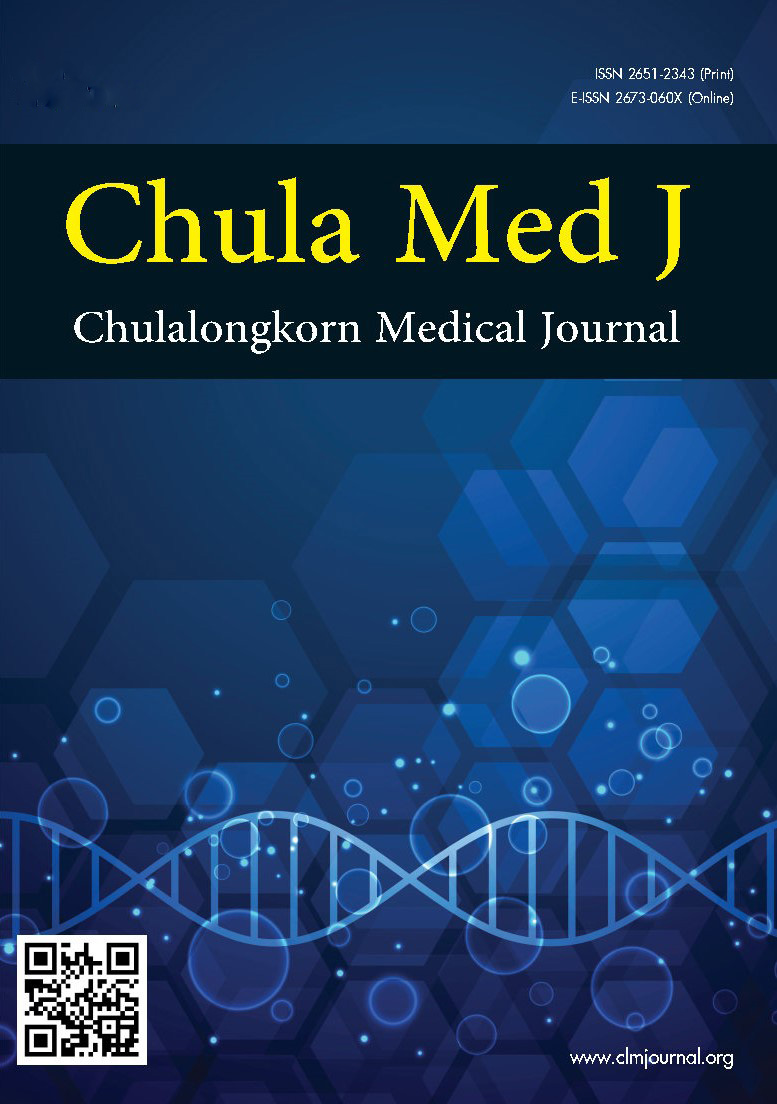H4K20me3 is increased in human bladder cancer tissues and is upregulated by reactive oxygen species in bladder cancer cell lines
Keywords:
Bladder cancer, H4K20me3, histone methylation, oxidative stress, ROSAbstract
Background: Previously, we demonstrated that reactive oxygen species (ROS) triggered oxidative stress,enhanced tumor aggressiveness, and induced a profound change in histone methylation in bladder cancer (BlCa) and reported H4K20me3 upregulation by ROS in hepatocellular carcinoma.
Objective: This study aimed to investigate whether H4K20me3 was upregulated in human BlCa tissues and determine if ROS could induce H4K20me3 formation in BlCa cell lines.
Methods: Immunohistochemical (IHC) staining was performed in 37 BlCa sections and 6 adjacent noncancerous tissues (controls). ROS upregulated H4K20me3 was investigated in three BlCa cell lines: UM-UC-3, VM-CUB- 1, and TCCSUP.
Results: The H4K20me3 levels in BlCa tissues increased relative to that in adjacent noncancerous tissues.The IHC score of the H4K20me3 level in BlCa tissues was significantly higher than that in noncancerous controls. H2O2(ROS representative) at 50, 100, and 200 mM significantly induced oxidative stress in UM-UC-3, VM-CUB-1, and TCCSUP cells, respectively, but did not significantly alter cell survival. Western blot and immunofluorescent staining results showed that H2O2treatment markedly increased H4K20me3 formation in all three cell lines.
Conclusion: This study demonstrated that the H4K20me3 levels in BlCa tissues obtained from Thai patients with BlCa increased compared with the levels in adjacent noncancerous tissues. Evidently, ROS upregulated H4K20me3 formation in BlCa cell lines. Perhaps, ROS induced the expression of histone methyltransferases that further caused an increase in H4K20me3 formation. The induction of tumor progression by ROS is well recognized; however, whether ROS induced BlCa progression is mediated by H4K20me3 formation remains to be elucidated.
Downloads
References
Boonla C. Oxidative stress, epigenetics, and bladder cancer. In: Preedy VR, Patel VB, editors. Cancer (Second Edition). San Diego: Academic Press; 2021. p. 67-75.
https://doi.org/10.1016/B978-0-12-819547-5.00007-9
Patchsung M, Boonla C, Amnattrakul P, Dissayabutra T, Mutirangura A, Tosukhowong P. Long interspersed nuclear element-1 hypomethylation and oxidative stress: correlation and bladder cancer diagnostic potential. PLoS One 2012;7:e37009.
https://doi.org/10.1371/journal.pone.0037009
Wongpaiboonwattana W, Tosukhowong P,Dissayabutra T, Mutirangura A, Boonla C. Oxidative stress induces hypomethylation of LINE-1 and hypermethylation of the RUNX3 promoter in a bladder cancer cell line. Asian Pac J Cancer Prev 2013;14:3773-78.
https://doi.org/10.7314/APJCP.2013.14.6.3773
Whongsiri P, Pimratana C, Wijitsettakul U, Jindatip D,Sanpavat A, Schulz WA, et al. LINE-1 ORF1 Protein is up-regulated by reactive oxygen species and associated with bladder urothelial Carcinoma progression. Cancer Genomics Proteomics 2018;15:143-51.
https://doi.org/10.21873/cgp.20072
Whongsiri P, Pimratana C, Wijitsettakul U, Sanpavat A, Jindatip D, Hoffmann MJ, et al. Oxidative stress and LINE-1 reactivation in bladder cancer are epigenetically linked through active chromatin formation. Free Radic Biol Med 2019;134:419-28.
https://doi.org/10.1016/j.freeradbiomed.2019.01.031
Phoyen S, Sanpavat A, Ma-On C, Stein U, Hirankarn N, Tangkijvanich P, et al. H4K20me3 upregulated by reactive oxygen species is associated with tumor progression and poor prognosis in patients with hepatocellular carcinoma. Heliyon 2023;9:e22589.
https://doi.org/10.1016/j.heliyon.2023.e22589
Agredo A, Kasinski AL. Histone 4 lysine 20 tri-methylation: a key epigenetic regulator in chromatin structure and disease. Front Genet 2023;14:1243395.
https://doi.org/10.3389/fgene.2023.1243395
Saksouk N, Simboeck E, Déjardin J. Constitutive heterochromatin formation and transcription in mammals. Epigenetics Chromatin 2015;8:3.
https://doi.org/10.1186/1756-8935-8-3
Fraga MF, Ballestar E, Villar-Garea A, Boix-Chornet M,Espada J, Schotta G, et al. Loss of acetylation at Lys16 and trimethylation at Lys20 of histone H4 is a common hallmark of human cancer. Nat Genet 2005;37:391-400.
https://doi.org/10.1038/ng1531
Elsheikh SE, Green AR, Rakha EA, Powe DG, Ahmed RA, Collins HM, et al. Global histone modifications in breast cancer correlate with tumor phenotypes,prognostic factors, and patient outcome. Cancer Res 2009;69:3802-9.
https://doi.org/10.1158/0008-5472.CAN-08-3907
Wang B, Zhou M, Gan XL, Ren YX, Yang YZ, Weng ZJ, et al. Combined low levels of H4K16ac and H4K20me3 predicts poor prognosis in breast cancer.Int J Clin Oncol 2023;28:1147-57.
https://doi.org/10.1007/s10147-023-02378-y
Yokoyama Y, Matsumoto A, Hieda M, Shinchi Y, Ogihara E, Hamada M, et al. Loss of histone H4K20 trimethylation predicts poor prognosis in breast cancer and is associated with invasive activity. Breast Cancer Res 2014;16:R66.
https://doi.org/10.1186/bcr3681
Benard A, Goossens-Beumer IJ, van Hoesel AQ, de Graaf W, Horati H, Putter H, et al. Histone trimethylation at H3K4, H3K9 and H4K20 correlates with patient survival and tumor recurrence in early-stage colon cancer. BMC Cancer 2014;14:531.
https://doi.org/10.1186/1471-2407-14-531
Zhou M, Li Y, Lin S, Chen Y, Qian Y, Zhao Z, et al.H3K9me3, H3K36me3, and H4K20me3 Expression correlates with patient outcome in esophageal squamous cell carcinoma as epigenetic markers. Dig Dis Sci 2019;64:2147-57.
https://doi.org/10.1007/s10620-019-05529-2
Schneider AC, Heukamp LC, Rogenhofer S, Fechner G,Bastian PJ, von Ruecker A, et al. Global histone H4K20 trimethylation predicts cancer-specific survival in patients with muscle-invasive bladder cancer. BJU Int 2011;108(8 Pt 2):E290-6.
https://doi.org/10.1111/j.1464-410X.2011.10203.x
Whongsiri P, Phoyen S, Boonla C. Oxidative stress in urothelial carcinogenesis: Measurements of protein Carbonylation and Intracellular production of reactive oxygen species. Methods Mol Biol 2018;1655:109-17.
https://doi.org/10.1007/978-1-4939-7234-0_9
Park WH. Effects of antioxidants and MAPK inhibitors on cell death and reactive oxygen species levels in H2O2-treated human pulmonary fibroblasts. Oncol Lett 2013;5:1633-8.
https://doi.org/10.3892/ol.2013.1216
Clément MV, Ponton A, Pervaiz S. Apoptosis induced by hydrogen peroxide is mediated by decreased superoxide anion concentration and reduction of intracellular milieu. FEBS Lett 1998;440:13-8.
https://doi.org/10.1016/S0014-5793(98)01410-0
Nguyen T, Nioi P, Pickett CB. The Nrf2-antioxidant response element signaling pathway and its activation by oxidative stress. J Biol Chem 2009;284:13291-5.
https://doi.org/10.1074/jbc.R900010200
Niu Y, DesMarais TL, Tong Z, Yao Y, Costa M. Oxidative stress alters global histone modification and DNA methylation. Free Radic Biol Med 2015;82:22-8
https://doi.org/10.1016/j.freeradbiomed.2015.01.028
Svobodová Kovaøíková A, Legartová S, Krejèí J,Bártová E. H3K9me3 and H4K20me3 represent the epigenetic landscape for 53BP1 binding to DNA lesions.Aging (Albany NY) 2018;10:2585-605.
https://doi.org/10.18632/aging.101572
Ma-On C, Sanpavat A, Whongsiri P, Suwannasin S,Hirankarn N, Tangkijvanich P, et al. Oxidative stress indicated by elevated expression of Nrf2 and 8-OHdG promotes hepatocellular carcinoma progression. Med Oncol 2017;34:57.
https://doi.org/10.1007/s12032-017-0914-5
Kloypan C, Srisa-art M, Mutirangura A, Boonla C.LINE-1 hypomethylation induced by reactive oxygen species is mediated via depletion of S-adenosylmethionine. Cell Biochem Funct 2015;33:375-85.
Downloads
Additional Files
Published
How to Cite
Issue
Section
License
Copyright (c) 2024 Chulalongkorn Medical Journal

This work is licensed under a Creative Commons Attribution-NonCommercial-NoDerivatives 4.0 International License.










